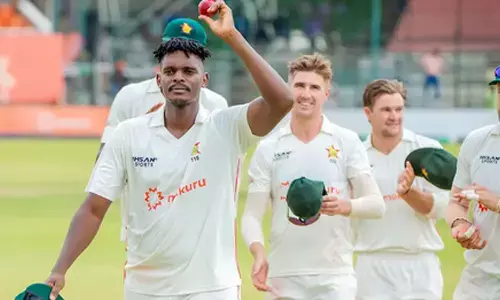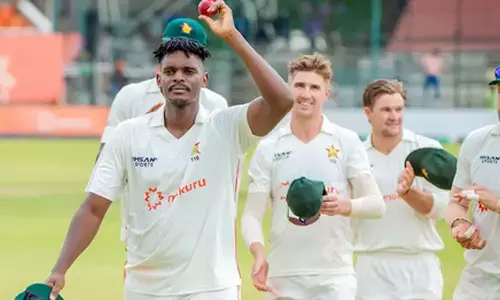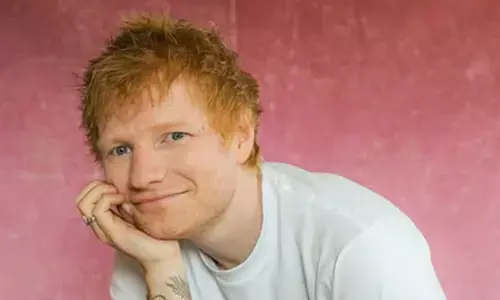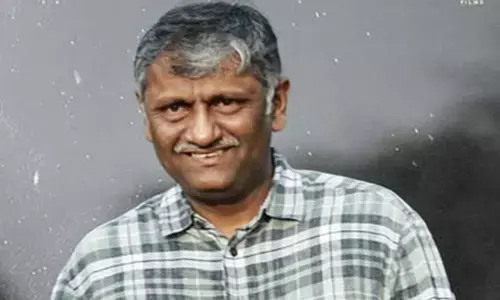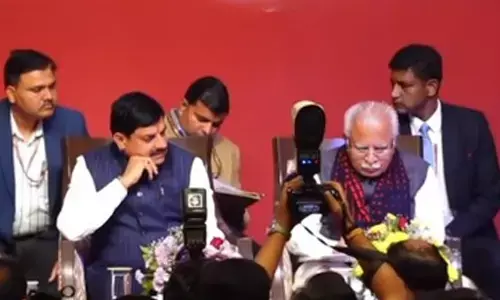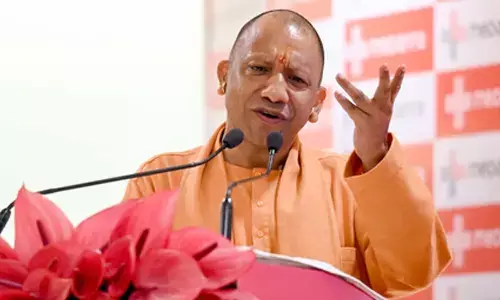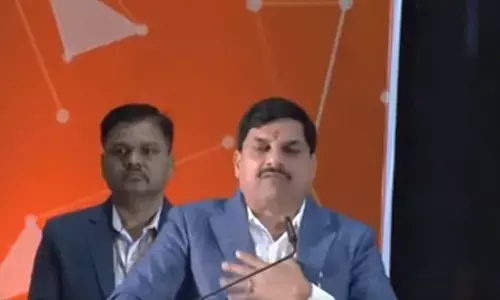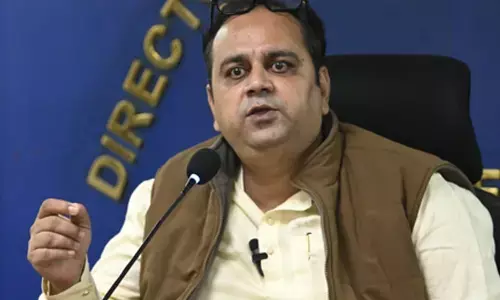U.S. calls on world to 'pick a side' on Venezuela; Europeans set to recognize Guaido
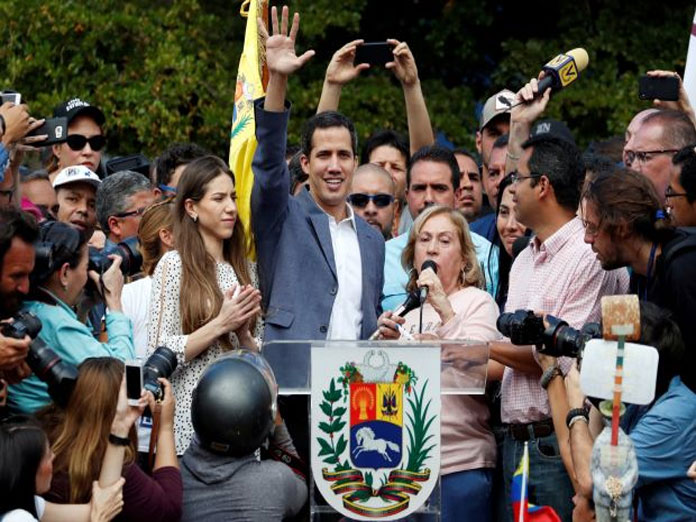
The United States on Saturday called on the world to pick a side on Venezuela and urged countries to financially disconnect from Nicolas Maduros government, while European powers signaled they were set to follow Washington in recognizing Venezuelan opposition leader Juan Guaido as the countrys rightful leader
UNITED NATIONS/CARACAS : The United States on Saturday called on the world to “pick a side” on Venezuela and urged countries to financially disconnect from Nicolas Maduro’s government, while European powers signaled they were set to follow Washington in recognizing Venezuelan opposition leader Juan Guaido as the country’s rightful leader.
A man carries a sign depicting Venezuelan President Nicolas Maduro, during a demonstration support of Venezuela's opposition leader Juan Guaido, on the Vatican Square in Buenos Aires, Argentina January 23, 2019. REUTERS /Martin Acosta/Files
In heated back-and-forth exchanges at a United Nations Security Council meeting, the opposing camp led by Venezuela and Russia, which has invested heavily in Venezuela’s oil industry, accused Washington of attempting a coup, and lambasted Europeans’ demand that elections be called within eight days.
Guaido, who took the helm of the National Assembly on Jan. 5, proclaimed himself interim president on Wednesday. The United States, Canada and a string of Latin American countries recognized the young leader in quick succession. Maduro, who has led the oil-rich nation since 2013 and has the support of the armed forces, has refused to stand down.
But on Saturday Guaido, 35, gained support from a key military official. Venezuela’s defense attache to Washington, Colonel Jose Luis Silva, told Reuters that he has broken with the Maduro government and recognized Guaido as interim president.
Speaking at the U.N. meeting, called by the United States, U.S. Secretary of State Mike Pompeo said Maduro’s “socialist experiment” had caused the economy to collapse and reduced ordinary Venezuelans to rooting through dumpsters for food.
“Now it is time for every other nation to pick a side. ... Either you stand with the forces of freedom, or you’re in league with Maduro and his mayhem,” Pompeo told the council. “We call on all members of the Security Council to support Venezuela’s democratic transition and interim President Guaido’s role.”
Pompeo also called on the international community to disconnect their financial systems from Maduro’s government. Washington has signaled it was ready to step up economic measures to try to drive Maduro from power, but on Saturday Pompeo declined to elaborate on any such plans.
By overcoming opposition to holding the U.N. meeting on Saturday, Washington successfully put the global spotlight on Venezuela as a Security Council problem. However, any council action to address the crisis would be blocked by veto-powers Russia and China, diplomats said.
Britain, Germany, France and Spain all said on Saturday they would recognize Guaido if Maduro failed to call fresh elections within eight days, an ultimatum Russia said was “absurd” and the Venezuelan foreign minister called “childlike.”
“Europe is giving us eight days? Where do you get that you have the power to establish a deadline or an ultimatum to a sovereign people?” Venezuelan Foreign Minister Jorge Arreaza told the Security Council.
Russia also said military intervention in Venezuela should be avoided at any cost, while Caracas reiterated that its offer of dialogue with President Donald Trump’s government was still on the table despite his administration’s two-year campaign against Maduro.
“If President Trump, like other presidents of the United States, is in search of war to show he can govern and to stimulate the economy, he won’t get that war in Venezuela,” Arreaza told reporters later.
‘FULL SUPPORT’
Venezuela has sunk into turmoil under Maduro with food shortages and protests amid an economic and political crisis that has sparked mass emigration and inflation that is seen rising to 10 million percent this year.
Maduro cruised to re-election last May. The opposition largely boycotted the vote after its senior leaders were blocked from taking part. Critics accused the government of vote buying. The domestic opposition, the United States and right-leaning Latin American governments declined to recognize the result of the ballot.
Venezuelan opposition sympathizers had been urging Guaido to assume the presidency since Maduro was inaugurated for a second term on Jan. 10. Hundreds of thousands took to the streets in Caracas earlier this week, calling on Maduro to step down.
Guaido’s declaration of himself as the interim president takes Venezuela into uncharted territory, with the possibility of the opposition now running a parallel government recognized abroad as legitimate but without control over state functions.
After the Security Council debate, Guaido sent a letter to Secretary General Antonio Guterres asking the United Nations for help addressing hunger, violence and the lack of medicines in his country.
The United Nations did not immediately respond to a request for comment on the letter.
Guaido celebrated the support of European countries and also asked them to send humanitarian aid to help relieve the economic crisis. “We woke up today with nothing less than the full support of the European community,” Guaido said at a small political event in a square in the capital Caracas.
“Several European countries have been in touch with us and are going to support the entry of humanitarian aid. ... We continue adding countries to this great effort,” he said.
The Maduro government has previously rejected such aid, denying there is a humanitarian crisis in the country and blaming economic problems on sanctions.
After Washington’s declaration of support for Guaido, Maduro cut off diplomatic relations with the United States on Wednesday and gave U.S. diplomats 72 hours to leave the country.
Some U.S. embassy staff left Caracas on Friday, and Venezuela was withdrawing staff from Washington on Saturday, Venezuela’s foreign ministry said in a statement
However, Maduro softened his demand that all U.S. embassy staff withdraw by Saturday.
Instead, the two countries will seek an agreement to replace the embassies with “Interest Offices” in their respective capitals within 30 days, the statement said. If that fails, the missions would close.









